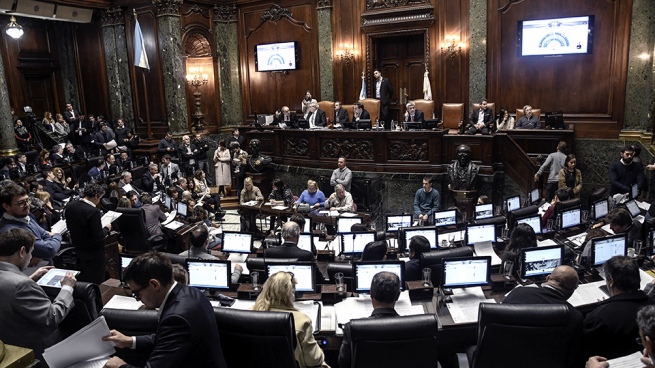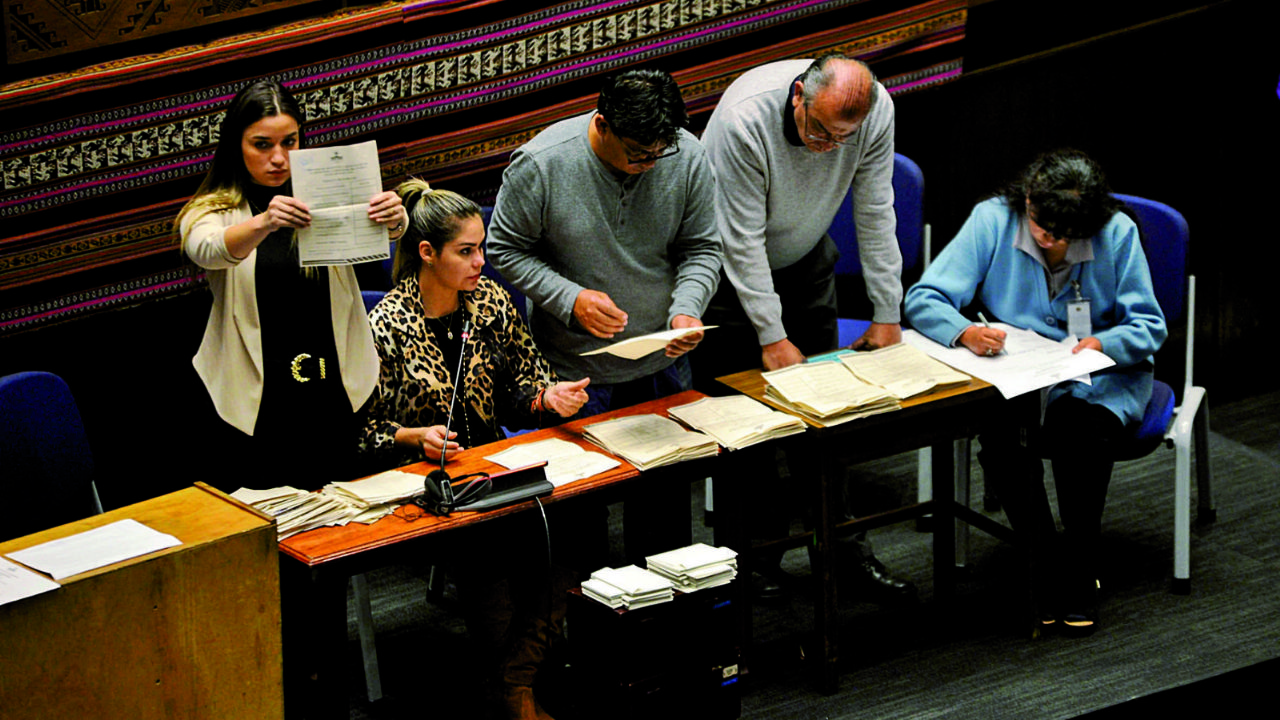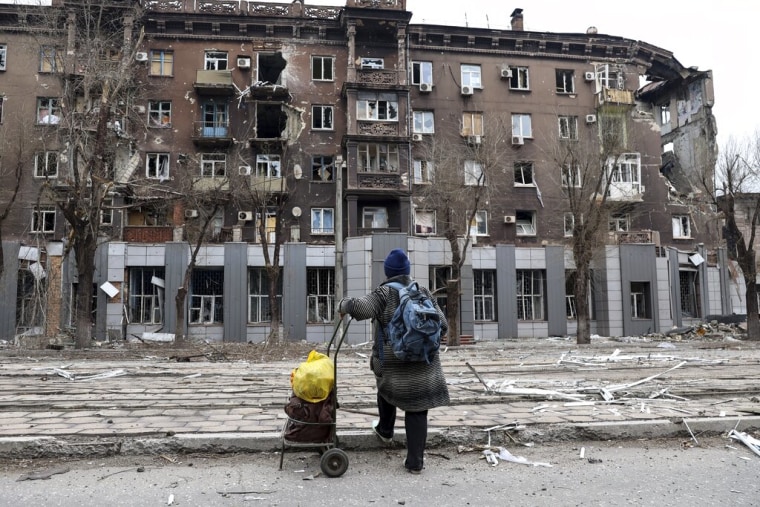The Legislature of Buenos Aires will vote next Thursday on a series of modifications to the teaching statute that were proposed by Together for Change (JxC) to “create new career opportunities” for teachers, although the left says it is a “disguised labor reform” , the Front for All (FdT) defines it as “insufficient modifications” and the unions demand a law that “includes all” education workers.
that Thursday, while the bill will be debated on the premises, several teachers’ unions will demonstrate at the doors of the Legislature, among them the Union of Education Workers (UTE-Ctera) and the Ademys Teaching Association (CTA).
The different opinions on the reform of the statute were expressed by legislators and trade union members over the last two months, since the project to “strengthen the teaching career” was presented in the Legislature by the radical deputy Manuela Thourte at the beginning of March and, since then, several joint meetings of the Education, Budget and Labor Legislation commissions have been held.
“We seek to promote alternatives for the professional teaching career; of course we are not solving all the problems of education, but facing one of them, which has to do with the quality of learning,” said Thourte in the last of these meetings, where JxC signed a majority opinion so that the project is in a position to be voted on in the venue.
The legislator pointed out that with this reform “Article 69 of the National Education Law is being complied with”according to which the teaching career “admits at least two options: performance in the classroom and performance of the managerial and supervisory function”, and added that “continuous training will be one of the basic dimensions for promotion”.
In this sense, Thourte explained that the new law will create three positions to ascend without leaving the classroom: specialist teacher, trajectory coordinator and tutor preceptor.
Another important aspect of the law is that it establishes the securitization, in an “exceptional” manner, of teachers at the secondary education level who, as of March 31, 2020, were performing their positions as interim.
In this regard, the general secretary of UTE, Angélica Graciano, said that “ten thousand teachers are left out of this law,” adding: “We want securitization because they have a historical debt with a vast sector of workers.”
On this point, he mentioned, among others, the teachers at the initial, primary and teacher education levels. Then he claimed “a law that includes us all” and defined the legislative debate on the project as “fictional”.
“We came to the hearings and not a single comma of the original project was changed. We are discussing in the Legislature something that we should be discussing with the employer: our working conditions,” Graciano said last Tuesday, before the plenary of commissions.
From the FdT, Deputy Alejandro Amor He expressed himself in a similar sense: “90% of the issues under discussion are of a labor nature,” he said, and considered that it is not the legislators who should modify the working conditions of any sector, since those are “faculties of the union associations”.
Throughout the days of debate, several teachers demanded that a teacher parity law be drawn up for the city of Buenos Aires.
From the FdT, it was also manifested lawmaker Claudia Neirawho defined the reform as “insufficient modifications”, while his bench mate Matías Barroetaveña said that “a few jobs and salary incentives” will be created, while the Buenos Aires government “continues with its intention of emptying the teaching staff by not giving their teachers”.
For the Left Front, legislator Amanda Martin considered that the project is a “disguised labor reform” to “make working conditions even more flexible”, and also lamented that the professors of the teacher training institutes have been excluded from the possibility of accessing tenured positions.
For Martín, the reason why higher education was not included in the securitization is that the Buenos Aires government “wants to advance with Unicaba” and “empty” the 29 teachers in the city.
The reform to the Buenos Aires teacher statute will be voted on next Thursday in a session that will begin at noon, and Ademys has already announced that that day it will strike and mobilize the Legislature to reject the reform and demand the massive securitization of middle-level teachers and superior, as well as the socio-educational area.
UTE, for its part, reported that it will go to the Legislaturelocated in Peru 160, but added that a plenary session of delegates will decide on Tuesday the “clarifications” on the mobilization.








